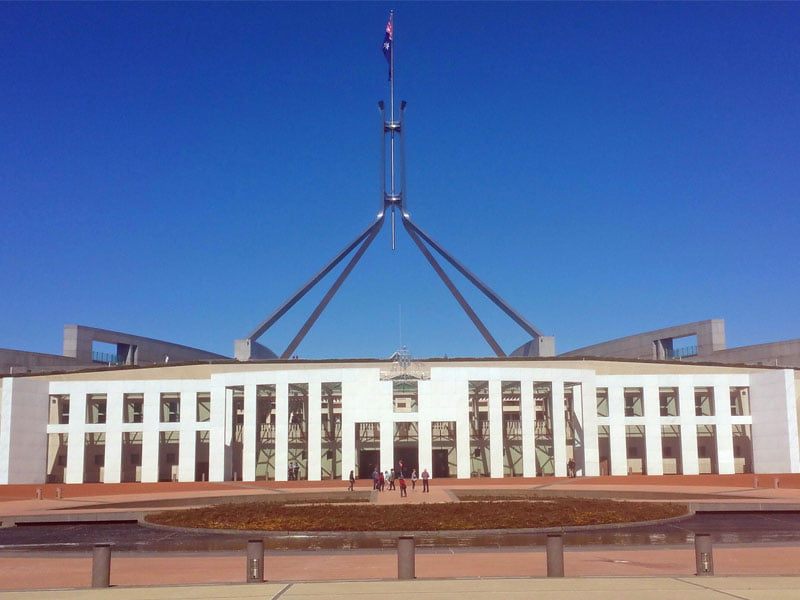Proposed changes to copyright takedown laws in Australia are “fundamentally at odds with long-standing international practice” and would put local tech companies at a disadvantage, according to StartupAus.
Recommendation 7 in the ACCC’s preliminary report from its inquiry into digital platforms was for ACMA to set a “mandatory standard regarding digital platforms’ take-down procedures for copyright infringing content to enable effective and timely take-down of copyright-infringing content”.
The ACCC has now publicly released the submissions it received on the draft report, and several from tech companies and industry groups have rallied against this proposal.

While most respondents broadly supported of a mandatory takedown standard, they argue that such a scheme would be ineffective and unfair without an extension of the current copyright safe harbour scheme to include tech companies.
The safe harbour scheme provides legal protection to service providers that host copyright infringing content if they take reasonable steps to remove it one requested. Several inquiries have recommended expanding this scheme to tech companies, but the government shied away from this when it passed copyright reforms midway through last year.
In its submission, StartupAus said the take-down regime in Australia adopts a “carrot and stick approach”, where companies are incentivised to remove copyright infringing content as they are liable for damages if they don’t do so.
But without a safe harbour expansion, the ACCC’s recommendation would not come with the necessarily incentive, it argued.
“If adopted, Preliminary Recommendation 7 would result in a scheme that implemented a takedown mechanism without the accompanying safe harbour that provides the incentive with which to cooperate – essentially, it is all stick and no carrot,” StartupAus said.
“Such a scheme is fundamentally at odds with long-standing international practice in this area and is at odds with the views of the Productivity Commission.”
If adopted, it would “put Australia out of step with those countries around the world that are heavily investing in, and fostering, their local tech sectors,” the lobby group said.
“Creating a separate scheme for Australia would place an additional regulatory burden on Australian platforms and startups to effectively manage two schemes, one for notices issued to them from within Australia and one for notices issued to them from other countries around the world in which they also operate,” it said.
StartupAus also rejected the ACCC’s notion that there are “lower incentives” for tech companies to respond to a takedown notice than traditional media companies.
“Startups are inherently risky ventures, with a high failure rate under the best of circumstances. Any significant threat to operational resources or cash, such as defending a copyright infringement claim, is a legitimately existential risk,” StartupAus said.
Other respondents also made similar points, including the Australian Digital Alliance, which supported the ACCC’s recommendation but only with another recommendation that the safe harbour scheme be expanded.
“A takedown system which does not incorporate protection against copyright liability will have the illogical outcome that innocent platforms that follow the scheme’s requirements and implement best practice tools to deal with copyright infringement could still be liable for the acts of their users,” the group said in its submission.
“The proposal to create an additional and separate takedown scheme, which duplicates and competes with both the Australian safe harbour scheme and the internationally recognised DCMA takedown system, will only serve to add confusion and complexity, reducing the effectiveness and efficiency of these mechanisms for creators and platforms alike.”
Without the accompanying reforms, the ACCC’s recommendation would do more harm than good, the Australian Digital Alliance said.
“Australian platforms are already at a significant disadvantage to their international counterparts due to the lack of a localised safe harbour scheme for their services,” it said.
“The ACCC proposal in its current form will result in Australian-based platforms being subject to more complexity, while at the same time increasing their risk of financial liability.”
Melbourne-based online user-submitted content marketplace Redbubble is commonly cited in the safe harbour debate in Australia, and in its submission, the tech company said the new scheme needs to incorporate an expansion of safe harbour provisions.
“An extension of safe harbour protection to commercial online providers is vital for the innovation agenda in Australia. Enabling innovation in our technology sector is therefore extremely important, and a working safe harbour system is a critical part of this,” Redbubble said in its submission.
“Without safe harbour protection in Australia, it will make it more difficult and expensive for Australian startups to innovate and grow into the likes of Facebook or YouTube.”
Social media giant Twitter also argued that the takedown standard would be a “significant departure from the current legal standards for issuing takedown notices that is relied upon by digital platforms and online service providers around the world”.
Another major preliminary recommendation from the ACCC that has the tech sector is worried are the proposed changes to merger and acquisition laws that would make the regulator consider whether an acquisition involved a “potential competitor”, with notice needed to be given to conduct an adequate review.
StartupAus said that an acquisition is a core exit strategy for startups, and the ACCC’s proposal could hamper their ability to do so.
“Reducing the activity or agility of the acquisition market in Australia presents a significant challenge to would-be entrepreneurs looking to start a business here.
“Increased involvement from the regulator may have the effect of driving down entrepreneurship rates by removing or restricting exit opportunities for startup founders. If fewer firms are founded, competition will necessarily suffer,” it said.
“It is far too early in the development of Australia’s technology sector, in our view, to be proposing an increase in regulatory oversight of tech M&A.”
Do you know more? Contact James Riley via Email.

